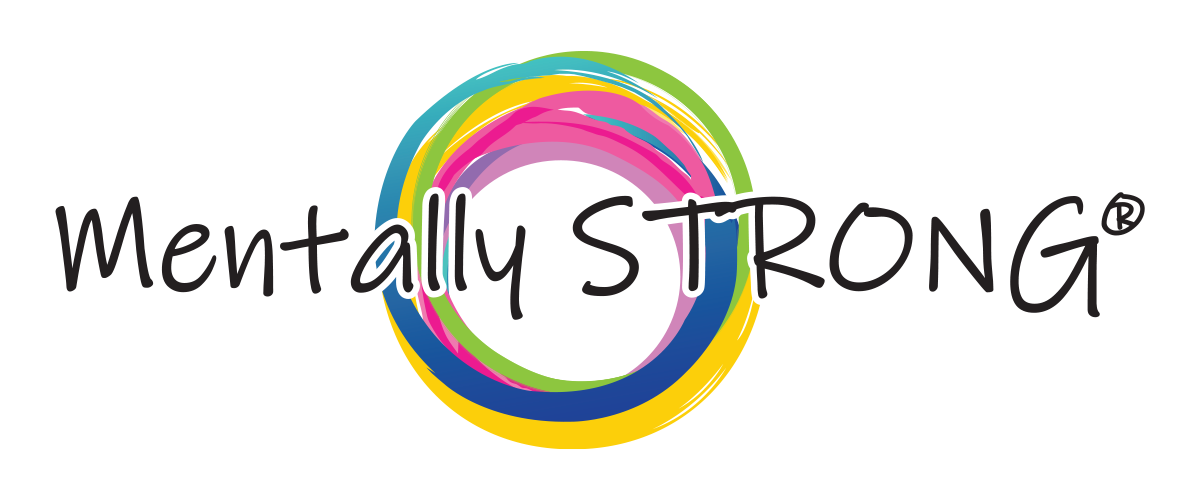Have you ever caught yourself thinking, “Am I asking for too much? Am I just a weight on the people I care about?” It’s a painful, lonely feeling—like you don’t quite belong or like you’re somehow “too much.” But let me reassure you: feeling this way doesn’t mean it’s true. You are not a burden. You are human, and these thoughts are simply a signal that something deeper needs attention.
Together, let’s untangle why you might feel this way and, more importantly, how you can stop feeling like a burden.
“Why Do I Feel Like A Burden?” 4 Common Reasons Why You Might Be Feeling This Way
Have you ever found yourself thinking, “why do I feel like a burden?”. This is especially common when you see other people around you perfectly comfortable with taking space, while you are unable to do so. Sometimes, feeling like a burden isn’t about what’s happening right now—it’s a reflection of the messages you’ve absorbed over time or the way you speak to yourself in vulnerable moments. It’s a narrative that often comes from past wounds or unmet emotional needs. Let’s break down four common reasons why this painful mindset may take hold:
1. Low Self-Esteem and Self-Worth
Low self-esteem creates a filter that distorts how you perceive yourself and others’ actions. Instead of seeing offers of support as love or care, you might view them as begrudging obligations. The root of these feelings often lies in unresolved insecurities or past experiences—like growing up in an environment where your needs were dismissed or met with frustration.
For example, you might think, “They’re only helping because they have to, not because they want to.” But pause for a moment: is this really true? Often, those who care about you genuinely want to be there for you. When your self-worth feels shaky, it can be hard to trust that.
Building a healthier sense of self-worth begins with recognizing these distorted thoughts and gently challenging them. You are deserving of care, not because of what you’ve done, but simply because you’re human.
2. Wanting to Be Perfect and the Fear of Letting Others Down
Do you hold yourself to standards that no one else could possibly meet? If so, even small mistakes or moments of vulnerability can leave you feeling like you’re failing those around you. This pressure to be “perfect” often comes from a fear of being judged or rejected, which can turn into a belief that needing help makes you a burden.
You might think, “If I can’t handle everything, I’m disappointing everyone.” But here’s the truth: perfection isn’t what people want from you. The people who care about you value your authenticity, not your ability to “hold it all together.”
Ask yourself, who set the expectation that you need to be perfect? Was it you, a critical parent, or societal pressure? When you let go of these unrealistic standards, you create space to accept your own humanity, and truly believe that you are good enough.
3. Struggling with Health Issues That Require Support
Physical or mental health challenges can make even the most independent person feel vulnerable. Whether you’re managing chronic pain, a mental health condition, or a temporary illness, needing ongoing support can lead to guilt and worry about “being too much.”
When you let thoughts like “they already have so much on their plate, am I just adding to their stress?” you underestimate the love and resilience of the people around you. True relationships are about give and take. If someone has chosen to support you, it’s because they value you and your presence in their life.
Still, it’s easy to feel guilty when your needs don’t have a clear “end date.” One way to ease this guilt is to express gratitude for the care you receive, while also reminding yourself that your value isn’t tied to how much you can do for others. Your worth is not diminished by your need for help.
4. Toxic Relationships That Make You Feel Unwanted
Toxic relationships can amplify feelings of being a burden. When someone repeatedly criticizes you, dismisses your feelings, or makes you feel “too much,” it’s easy to internalize their negativity. Over time, you might start to believe that their mistreatment is a reflection of your worth, even though it’s not.

In these situations, you might think, “If they don’t want me around, why would anyone else?” But remember: toxic people’s words and actions often say more about their own struggles than about you. Healthy relationships nurture and uplift, while toxic ones erode your confidence and sense of belonging.
Recognizing the impact of toxic dynamics is the first step toward healing. You don’t have to accept someone else’s narrative about your worth. Surrounding yourself with supportive, understanding people can help you rebuild your sense of self and remind you that you are never a burden.
8 Steps to Stop Feeling Like a Burden
Overcoming the belief that you’re a burden is a process, one that requires self-exploration, patience, and action. Each step is a small but significant way to shift your perspective and create a foundation for self-worth. Here are eight strategies to help you move forward:
Step 1: Challenge and Reframe Negative Self-Talk
Negative self-talk often fuels the belief that you’re a burden. These thoughts might sound like, “I’m just getting in the way,” or, “They’d be better off without me.” While these feelings are valid, they’re rarely true.
Start by identifying these thoughts when they arise and questioning their accuracy. Ask yourself: Would I say this to a loved one in my position? Probably not. Replace these thoughts with affirming statements like, “My needs are valid,” or, “It’s okay to ask for help.”
Step 2: Open Up to Trusted Loved Ones
Sometimes, simply sharing how you feel can provide immense relief. Tell someone you trust, “I’ve been struggling with feeling like I’m a burden.” The people who care about you will likely offer reassurance and remind you of your value.
Opening up also helps create space for vulnerability in relationships, allowing others to show their love and support. Remember, asking for help doesn’t make you weak—it strengthens the bonds you share.
Step 3: Practice Self-Care to Recharge and Heal
Taking care of yourself isn’t selfish. It’s essential. When you feel like a burden, it’s easy to neglect your own needs, but this only deepens the cycle of guilt and self-doubt.
Focus on small, nourishing actions: eating well, staying hydrated, getting enough rest, or spending a few minutes in nature. These simple steps can help you feel more grounded and better equipped to challenge negative feelings.
Step 4: Cultivate Self-Love Through Affirmations and Journaling
Building self-love is a practice, and affirmations can be a powerful tool. Write down statements like, “I am worthy of love and care,” or, “My presence is a gift to those around me.” Repeat them daily, even if they feel awkward at first.
Journaling can also help you untangle your thoughts and emotions. Use prompts like, What am I grateful for today? or, What makes me a valuable friend, partner, or family member? Over time, these practices reinforce a more compassionate inner dialogue.
Step 5: Recognize and Regulate Emotional Triggers
Certain situations or interactions might make feelings of being a burden worse, like when someone dismisses your needs or you’re reminded of a time you felt rejected. These are emotional triggers, and recognizing them is the first step toward managing them.
When a trigger arises, take a moment to pause and ground yourself. Deep breathing, counting to ten, or even stepping away from the situation can help. Over time, you’ll gain confidence in navigating these moments with self-awareness and grace.
Step 6: Seek Professional Help for Deeper Healing
Sometimes, the belief that you’re a burden is rooted in unresolved trauma or deeply ingrained patterns of thought. Working with a therapist—especially one trained in Cognitive Behavioral Therapy (CBT)—can help you explore these roots and reframe your perspective.
Therapy offers tools to navigate feelings of unworthiness and strengthen your emotional resilience. It’s a safe space to untangle complex emotions and start building a foundation of self-acceptance.
Step 7: Pay It Forward Through Acts of Kindness

Helping others can be a powerful way to remind yourself of your value. Small gestures, like offering a listening ear or helping with a task, create moments of connection and meaning.
These acts aren’t about proving your worth. They’re about experiencing the joy of giving and seeing firsthand how your presence makes a difference.
Step 8: Embrace Gradual Progress Over Perfection
Healing isn’t a straight line, and it’s okay to take things one day at a time. Celebrate small victories, like recognizing a negative thought or reaching out for help. Each step forward matters.
Understanding yourself is key to this process. When you take the time to explore your feelings, triggers, and patterns, you begin to see the roots of your struggles more clearly. This awareness allows you to approach healing with greater compassion and intention.
Perfection isn’t the goal—progress is. As you continue to work on these steps, you’ll notice a shift in how you see yourself and your relationships.
What Not to Do When You Feel Like a Burden
When feeling like a burden becomes overwhelming, it’s easy to fall into habits that unintentionally reinforce the pain. Avoiding these common pitfalls can make a significant difference in your healing journey.
Avoid Isolating Yourself from Support Systems
It’s tempting to withdraw when you feel like a burden—thinking it might spare others or protect yourself from judgment. But isolation doesn’t lighten the load; it makes it heavier. Cutting yourself off from loved ones denies you the support and care that could help you heal.
Instead, take one small, courageous step toward connection. A simple message like, “I’m having a tough day, and I could use some company,” can open a door back to the relationships that nourish and ground you.
Don’t Ignore Triggers—Address and Manage Them
Avoiding triggers might feel safer in the moment, but it keeps you from understanding and healing the wounds underneath. The longer you ignore the sources of pain, the more power they hold over you.
Instead, approach your triggers with curiosity and compassion. Ask yourself: What does this reaction tell me about my past experiences? How can I care for myself in this moment? Facing triggers is difficult, but it’s also an opportunity to reclaim control and move toward growth.
Resist Perfectionism and Unrealistic Expectations
Do you hold yourself to impossibly high standards, believing anything less is a failure? Perfectionism can fuel the fear of being a burden, making you feel like you’re “never enough.”
But here’s the truth: your worth isn’t measured by how flawlessly you perform or how much you can handle alone. Let go of the expectation to be perfect, what matters is doing what you can with grace and self-compassion.
How the Mentally STRONG Method Helps You Reframe Feeling Like a Burden
Healing from feelings of being a burden takes intention, self-awareness, and tools that help you shift your perspective. Working on your present self not only helps you heal but also addresses the pain of your past self. It’s an act of self-compassion that untangles old wounds while creating a foundation for growth.
The Mentally STRONG Method, grounded in Cognitive Behavioral Therapy, provides a practical framework for this transformation. By committing to this work now, your future self will thank you for the strength and clarity you’ve cultivated.
Think: Acknowledge and Explore Your Thoughts
Start by creating space for honesty. What are the thoughts running through your mind when you feel like a burden? Write them down without judgment.
For example, if your inner dialogue says, “I’m too much for anyone to handle,” ask yourself: Where does this belief come from? Is it rooted in my past, or is it based on my current reality? By naming and examining these thoughts, you begin to loosen their grip.
Organize: Identify Patterns and Understand Your Triggers

Once you’ve acknowledged your thoughts, step back and look for patterns. Are there specific situations or relationships where these feelings arise? Understanding the root causes (whether it’s a toxic relationship, low self-worth, or fear of rejection) allows you to address the true source of the pain.
Organizing your thoughts into categories like grief, self-esteem, or past experiences helps you see the bigger picture. It’s not about fixing everything at once; it’s about untangling the threads, one at a time.
Choose: Shift Your Energy Toward Positive Action
The final step is choosing how to respond to the challenges you face. Instead of letting feelings of being a burden dictate your actions, take a small but intentional step toward self-care or connection.
This could mean reaching out to a friend, setting a boundary, or practicing an affirmation like, “I deserve support, just like anyone else.” Each choice reinforces the truth that you are not a burden. You are human, worthy of love and care.
You Are Not a Burden, and You Are Mentally STRONG
Feeling like a burden can leave you questioning your place in the world, but the truth is, your value has never been in doubt. Your worth isn’t tied to how much you can give, how independent you are, or how perfectly you perform.
Every small step you take proves your strength. Healing doesn’t happen overnight, but with time and patience, you can shift the narrative.
You don’t have to carry this alone. Support is out there: from loved ones, therapy, or tools like the Mentally STRONG Method. The courage to seek help is not a sign of weakness; it’s a powerful declaration of your value and determination to heal.
You are not a burden. You are loved, you are enough, and you are mentally strong.

